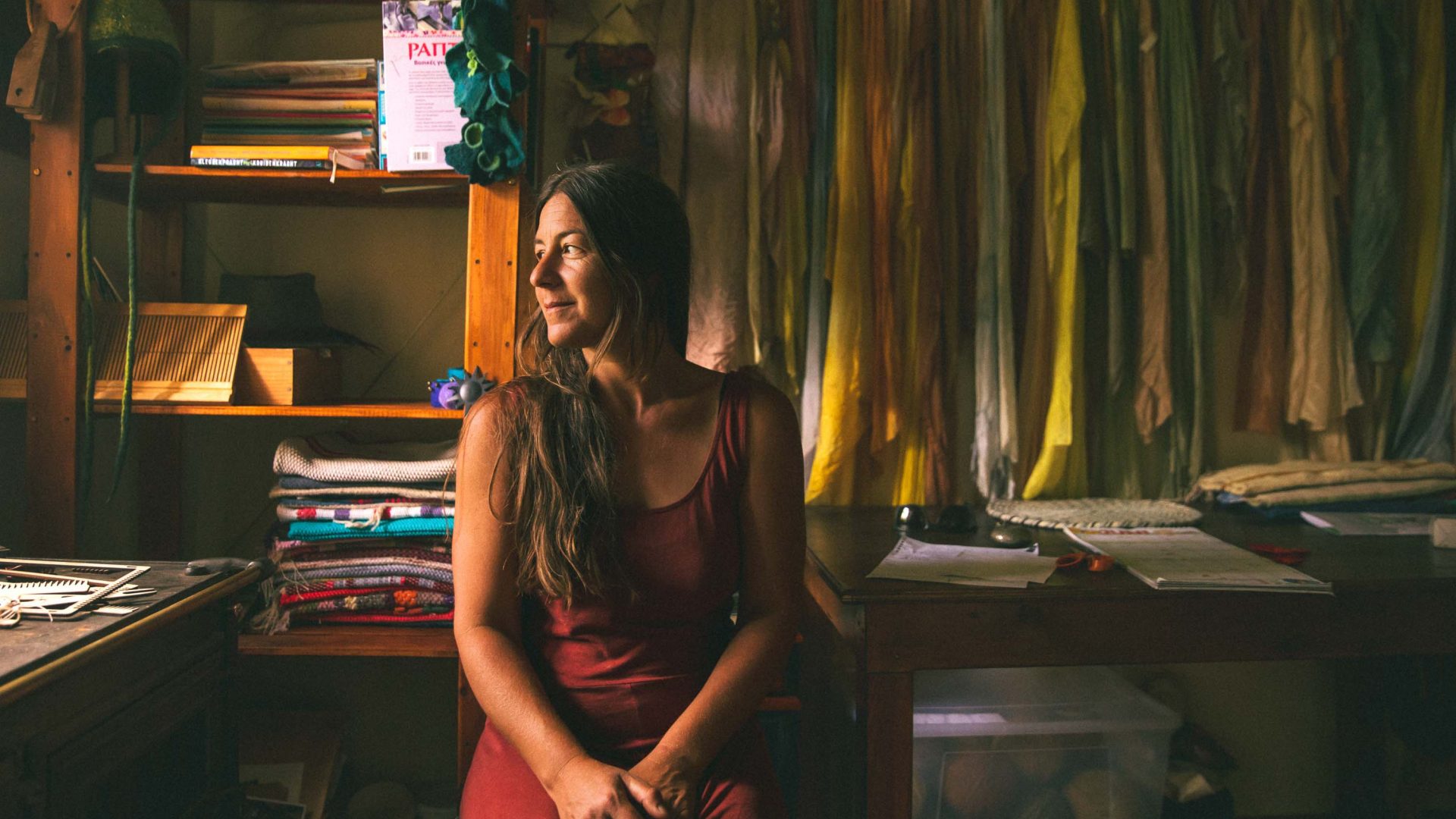
In Greece’s near-untouched Epirus region, locals are fighting depopulation and the imminent threat of big oil through craft, creativity and community-based tourism initiatives. Reporter Alex King and photographer Theo McInnes pay them a visit.


In Greece’s near-untouched Epirus region, locals are fighting depopulation and the imminent threat of big oil through craft, creativity and community-based tourism initiatives. Reporter Alex King and photographer Theo McInnes pay them a visit.
A flock of sheep bounds across a field, bathed in a golden glow from the setting sun. Lena gives chase, and dives to catch one of the younger stragglers. She tackles it and the pair roll around in the long grass as the sheep tries to wriggle free. “Come and touch the wool,” Lena cries, giggling as she wraps her arms around the sheep’s fluffy body. “It’s so soft, feel for yourself.”
Epirus is a magical part of the world. This isolated and sparsely-populated region of the Balkans straddles northwestern Greece and southern Albania. Its mountainous geography contributes to its feeling of disconnection with the rest of the world, as well as its underdevelopment and its unspoilt natural beauty.
Even in the 21st century, time seems to move at a different pace here.
We’re near Ano Pedina, a picturesque slice of Epirus located in northern Greece. Lena Gerothanassi and her husband Kostas run a farm where they grow lentils, chickpeas, fava, salads and other vegetables to serve at their guesthouse, Rokka, up the hill in Elafotopos village. But their passion is Pokari Project, a Sustainable Social Cooperative Enterprise (KOINSEP) they founded in 2021 to revive traditional weaving and save the area’s nomadic shepherds and their ancient, indigenous breeds from extinction.
Lena and Kostas aren’t alone in bringing together artisan agricultural production, sustainable tourism and traditional craft. Photographer, Theo, and I are cycling up into the mountains to meet a collection of individuals who are working tirelessly to revitalize rural life in Epirus and pushing back against decline, depopulation and destructive development. We’ve heard that these locals are determined to show that bringing together responsible tourism with Epirus’ rich traditions and its abundant natural resources can catalyze a vibrant local economy—one built on sustainable foundations.
“What can we do against these oil companies? It’s like a monster lurking above us. Why take what we have beneath the ground? We have everything we need above the earth.”
- Lena Gerothanassi
Much of Epirus is part of the EU’s Natura 2000 protected area scheme and the mountainous Zagori region—which contains the Aoos-Vikos Geopark, the Pindus National Park and a network of 46 well-preserved stone villages—has been nominated for UNESCO Cultural Landscape Status.
But for many local people, life is a struggle. Underdevelopment may have helped preserve Epirus but the flip-side is minimal infrastructure and significant population decline. It also remains one of the poorest regions in Greece.
So when hydrocarbon exploration in the region found considerable natural gas reserves, some local people and politicians were seduced by promises of wealth and jobs, viewing drilling as a way to reverse the region’s decline. But opposition to drilling has been fierce, too.
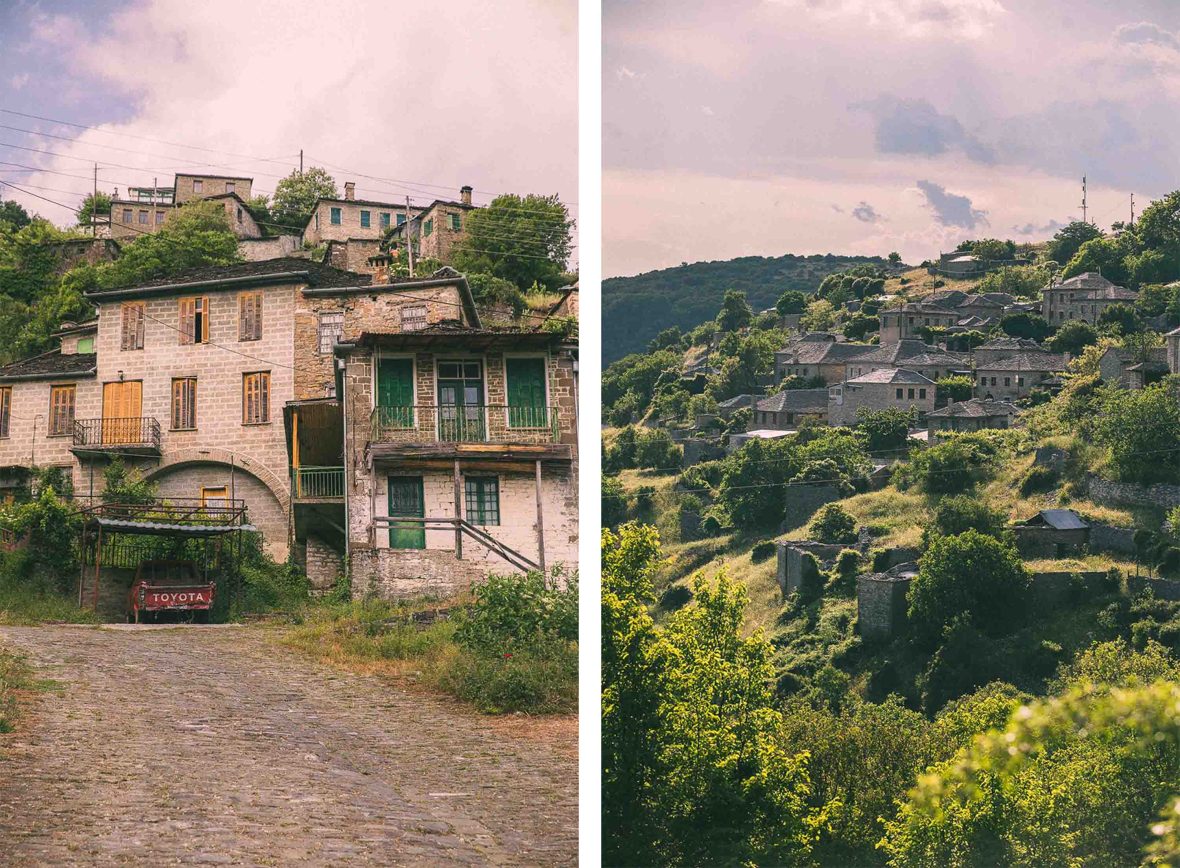
Lena loves the never-ending challenges of farm life, from the harsh weather to invasions of crop-eating wild boars. “We have many enemies here,” she says, laughing. “Most of them we know how to deal with. But now the oil drilling? What can we do against these oil companies? It’s like a monster lurking above us. Why take what we have beneath the ground? We have everything we need above the earth!”
Lena grew up in the Platamonas, a small village in northern Greece. When she first arrived in Zagori to study weaving in her twenties, she was taught with cotton, which has no connection to the area. But Lena’s real education came from the elder women of the village, the traditional guardians of the ancestral knowledge. “These nomadic old women from the Sarakatsani tribe were my teachers and they knew everything there was to know about sheep, from spinning wool to making cheese,” Lena remembers fondly. “Wool became my mania. For over a decade, my best friends were all over 85 but slowly they all left the earth.”
In 2015, Lena began sourcing wool from the dwindling numbers of nomadic herds in Epirus, which helped provide a source of income to the last shepherds still working with the area’s ancient breeds. Like many other agricultural products, the price of wool has been falling for decades.
Today, selling wool often doesn’t even cover the expenses of shearing it.
As traditional weaving has boomed in popularity—both in Greece and across Europe—Lena received enthusiastic feedback from Greeks and foreigners alike. During the long days of lockdown, she worked to establish the Pokari Project, bringing together a core group of five: Kostas, another weaver, an environmentalist and the president of the Nomadic Shepherd’s Association of Epirus.
Pokari means ‘fleece’ in Ancient Greek. They have woven local wool into jackets, traditional flokati mountain rugs and other carpets. They also sell wool for others to use in their own weaving and aim to increase education around wool, running courses for children on the life cycle of sheep. Pokari hosted their first weaving summer school in Metsovo, a town with a strong weaving tradition, in June 2022.
“We want to give wool back its value, so we buy from farmers at a fair price,” Lena explains. “But it’s also about giving wool its identity back and restoring pride to the shepherds. We need to support nomadic farmers as they are responsible for maintaining the biodiversity on the mountains. Because we know which shepherd provided the wool for each carpet, we’re connecting the product to the region and region to product. Each one lifts the other: that’s my fantasy. But if we don’t act, one day the mountains will be empty.”
Rural communities are in decline across Europe—this is not a problem unique to Epirus. Nobody has yet found a way to stem the tide, although there have been many small-scale interventions. A number of Italian villages made headlines by selling off houses for €1, while five hours drive south, the Vamvakou Revival project is using funds from the Stavros Niarchos Foundation to transform a Peloponnesian village into a hub for arts, outdoor activities and digital workers.
In Greece, years of austerity have seen state support services shut down and withdrawn. There are many working to turn the tide in Epirus but, as yet, no coordinated effort to develop this emerging grass-roots movement into a region-wide rural spring.
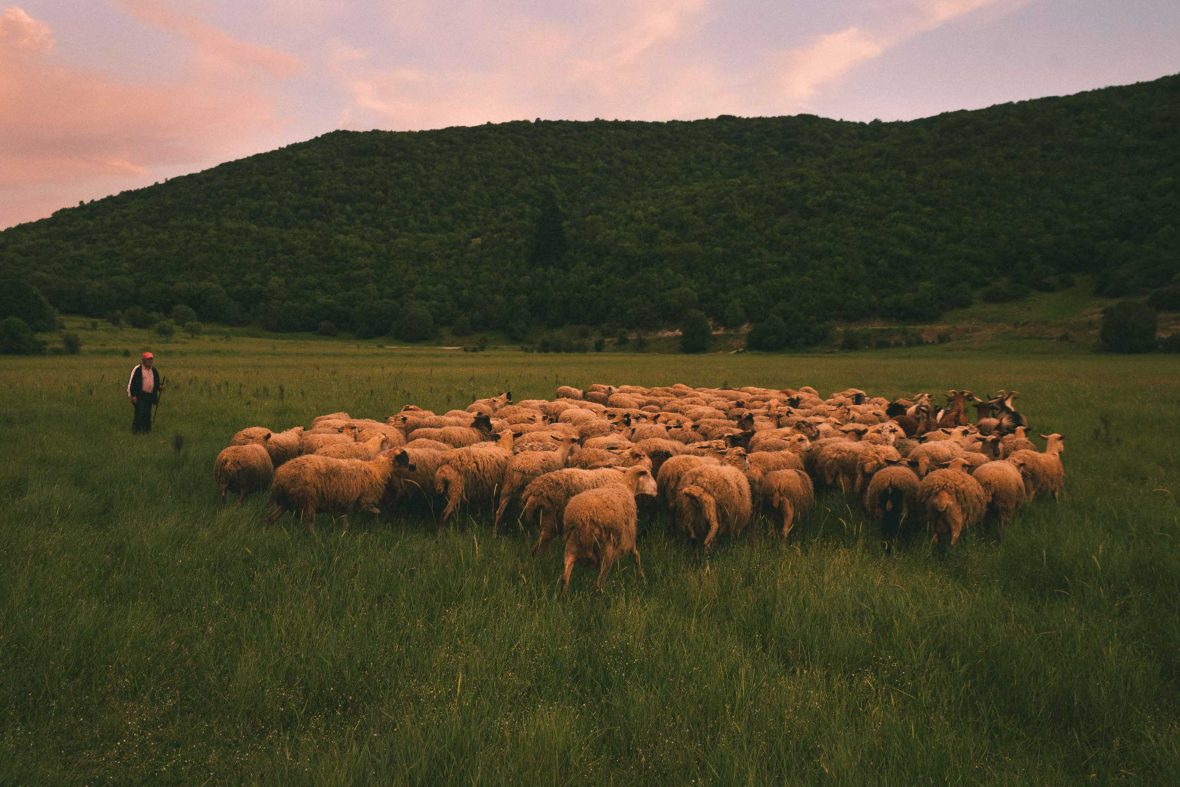
We’re just above the village of Vradetto in a small meadow 1,400 meters above sea level. The early morning sun breaks through patchy clouds, and illuminates two neat rows of wooden beehives with white-painted roofs. Eleni Plachoura jumps out of a white Land Rover emblazoned with the Nomad Honey logo: A tree, a tent and a beehive.
“Trying to collect honey is like treasure hunting,” Eleni explains, as she and her partner Vassilis Ritas pull on their beekeeping suits and tend to their bees. “The bees support all the flowering plants around them, so you have to be really careful not to harm them.” This is hyper-local food: Depending on what is flowering at a given time, the honey will take on a different flavor. As Eleni talks, Vassilis cracks open one of the hives and pulls out a honey-packed frame.
We follow Eleni and Vassilis to the top of the ridge above the hives for a 360-degree view of the seemingly endless mountain peaks of the Vikos-Aoos Geopark. Nomad Honey have three collections of hives in Zagori and another one in Karpenisi, further southeast in Evrytania, all between 1,100 and 1,400 meters above sea level, where pollinators are in short supply.
For a decade, Eleni and Vassilis studied and worked as civil and mechanical engineers, respectively, on state and private construction projects in Athens, Ioannina, Guildford and Patras. After they moved back to Ioannina, where they grew up, bees arrived in their lives almost by accident.
Eight years ago, an old nun from a nearby monastery pressured a reluctant Vassilis into taking care of some beehives for her. Slowly, an obsession grew, and both Eleni and Vassilis went to study beekeeping at Aristotle University of Thessaloniki in their spare time. As beekeeping took over more and more of their lives, they quit engineering to found Nomad Honey in 2016.
“The biodiversity of Epirus and especially in the Vikos-Aoos Geopark is really interesting,” Eleni explains. “There are rare types of plants, herbs, trees and wildflowers. In just a small area, you can harvest many different types of top quality honey. Our honey is undergoing research at the University of Thessaly and they have found it has the highest levels of antioxidants and antibiotic properties that it’s possible to have in honey.”
“We’re in these mountains because we want to make a premium product. Oil extraction would destroy this, it would be the end for us. Organic certified producers can’t be close to cities, to main roads or pesticides. If this goes ahead, we would take our bees and go somewhere else.”
- Eleni Plachoura
Nomad Honey has been awarded the prestigious TÜV Austria Bio certification and they export to the US, France and Germany. But all of this exhausting physical work each day and the huge effort to establish Nomad Honey’s reputation could be under threat if hydrocarbon extraction is allowed to go ahead. “We’re in these mountains because we want to make a premium product,” Eleni reflects. “Oil extraction would destroy this, it would be the end for us. Organic certified producers can’t be close to cities, to main roads or pesticides. If this goes ahead, we would take our bees and go somewhere else.”
Even without drilling, small, family producers in Epirus still face huge challenges to survive—and Eleni and Vassilis have seen many others try and fail. Finding a fair price, even for the best quality product, is often impossible. On top of the many challenges involved in production, packaging, branding, marketing, certification, bureaucracy and taxes all sap time and resources. There’s little left at the end of the day.
Eleni and Vassilis argue that a total shift in mindset is required, both to end our reliance on oil and to create a more sustainable economy where small producers can thrive. Everywhere, but especially in Epirus, they say we need to consume less but higher-quality natural products from local farmers and producers, and continue exploring solar as a viable alternative to oil.
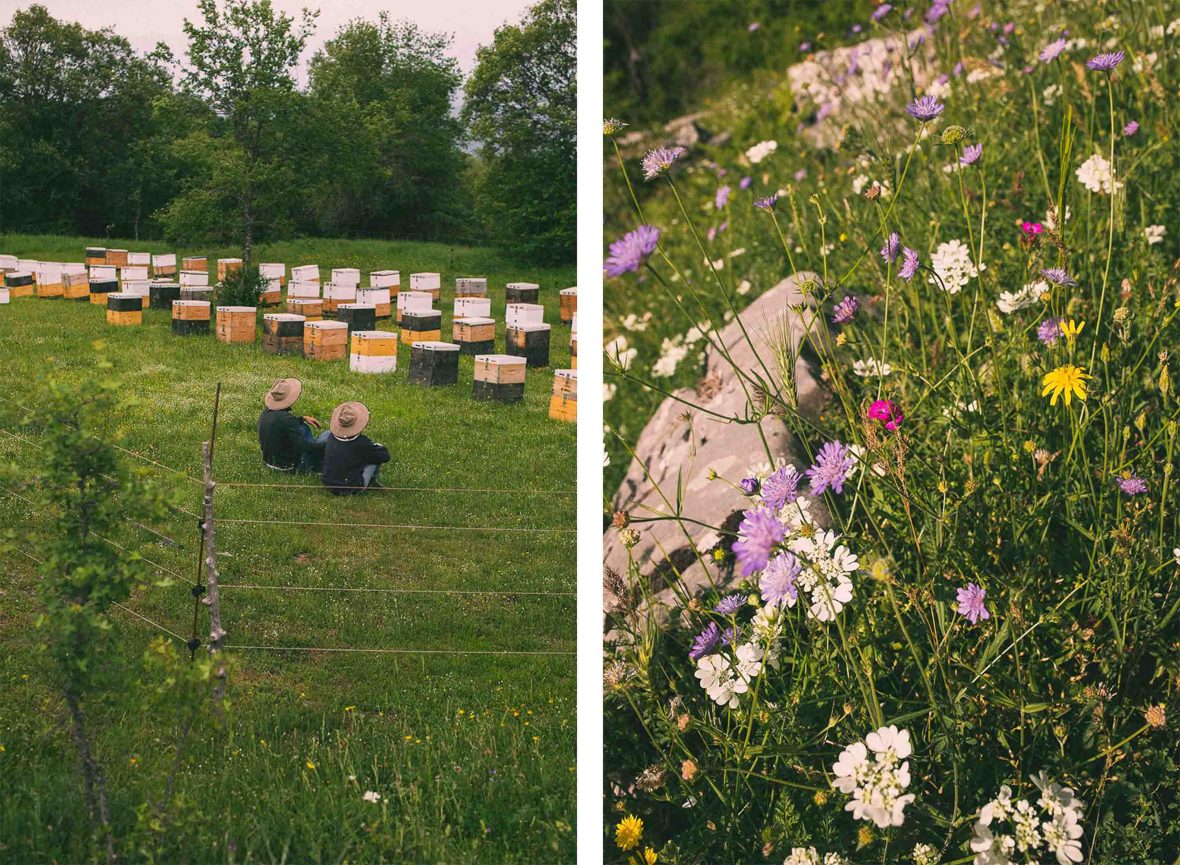
Launched by local people in October 2017, the ‘Save Epirus’ campaign raised awareness around the potential devastation of this unique and fragile ecosystem.
A traditional clarinetist led protest marches and Vrisoules—a group of women, young and old—danced in traditional dress in non-violent but provocative protest. Campaigners thought they had successfully defeated hydrocarbon extraction plans in Epirus. But following the oil price shock provoked by Russia’s invasion of Ukraine, in April 2022 Greek prime minister Kyriakos Mitsotakis announced his government’s intention to continue exploration and potentially extraction in six on-and-off-shore areas in Greece—one in Epirus.
In July, a draft law was introduced for consultation that would allow drilling for oil and gas in protected areas. Locals have struggled to get information out of Energean, the company active in the area, but their interest is believed to be focused on natural gas reserves near the village of Zitsa.
Zitsa is one of the biggest and most well-resourced villages in the area, home to two respected wineries. Dimitris Ibrahim of Greenpeace Greece—who we spoke to while researching this story—argues that the project should be halted on environmental and climate change grounds alone, and questions whether the economics of natural gas extraction can stand up to scrutiny when costly pipeline infrastructure is taken into account. Local campaigners argue that any profits will not compensate for the destructive effects of drilling or fracking on the local economy, which is based primarily on tourism and small-scale agricultural production.
“I really don’t know how this healthy environment of agriculture, food and tourism can ever coexist with oil drilling,” explains Kostas Karamichos, a respected baker in Zitsa. Kostas was raised in Zitsa, and met his American wife Anna Ellis while couchsurfing. Anna and Kostas are building a young family and business together in Zitsa; they offer bakery experiences, host traveling cyclists from Warm Showers (a hospitality exchange for touring cyclists) most days, and have recently built beautiful accommodation, the Lazy Loft Farm House, on their family sheep farm, which also supplies the bakery.
They say their capacity to grow is only constrained by their finite time and energy. “But if the drilling goes ahead, I can’t see how we could carry on,” Anna warns. “Where would we go? We’re so tied to the land, economically and spiritually.”
Ioannina, the regional capital of Epirus, flourished during the Byzantine and Ottoman eras, and retains a medieval, hard-stone character that’s quite different to any other city in Greece. It sits elegantly on the shores of Lake Pamvotis, where its former ruler and notorious warlord Ali Pasha threw many of his enemies to their deaths.
Legend has it that Roma musicians traveling north would dip their instruments in the lake’s waters to absorb its sadness in their music. Ioannina’s Ottoman and Islamic heritage is still clear to see and it’s also one of the few Greek cities where you can still spot a minaret rising into the sky.
On Zappa, along the historic street of the ironsmiths, a thin plume of smoke is rising into the sky. Carcasses of rooster, lamb and sea bass are hanging ominously over a smouldering fire, suspended from what looks like a handmade medieval instrument of torture.
Jordan Tseneklidis and Panagiotis Siafakas tend to the fire outside Folk, a restaurant which presents Epirote street food and collaborates with the best chefs and producers of the region. Today, they’re cooking with Giannis Loukakis from Moúrga in Thessaloniki and Thodoris Kassavetis from Phita in Athens. The street is thronging with a crowd drinking beers and incredible autogenous biological wines, produced by local winemaker Vassilis Vaimakis and his daughter Danae.
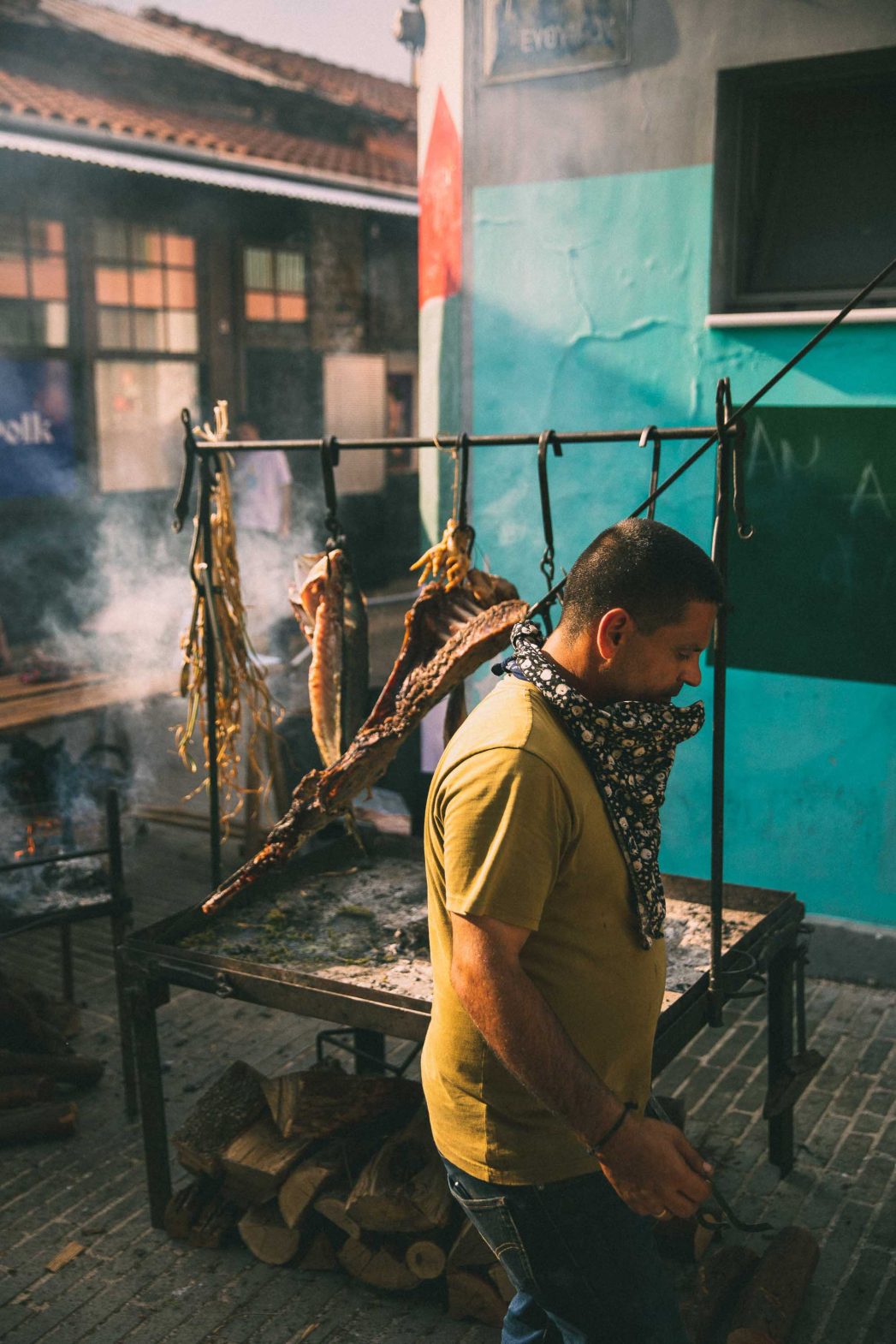
Jordan and Panagiotis are Nomad et Sauvage, a duo of itinerant chefs who cook over an open fire, as they travel across Greece, hosting outdoor feasts, foraging and cooking experiences. From the road, they conduct culinary and cultural research, on a mission to rediscover authentic Greek food—particularly mountain food.
Panagiotis was raised in Ioannina, while Jordan grew up in Grevena. Ever since he was a child, Jordan has been in awe of the mountains of Epirus and their unique produce and recipes. “My heart is in the mountains: the Pindus area is my greatest inspiration,” Jordan says. “Winters are long, conditions are harsh and life is much more difficult: Cooking here is a song of pain.”
Like most Greek chefs, Jordan worked in tourism for over a decade but grew disenchanted with the product packaged-up for tourists. Six years ago, he discovered cooking with wood over an open fire and the vision of a new direction began to form among the flickering shapes of the smoke. “Fire is the alphabet, our identity is the grammar,” Jordan explains. “I wanted to be more authentic, I wanted to be me. Cooking with fire, I found a way to express our truth.”
Jordan argues that Greeks have lost touch with their true culinary heritage but Nomad et Sauvage is a vehicle through which he and Panagiotis can rediscover it—and share the fruits of their labor. “We’re trying to rediscover our local, culinary heritage: the aesthetic, the techniques, the ingredients, the climate, the taste,” Jordan explains. “We’re traveling, reading and researching to find our compass: to understand why, how and who.”
All of Nomad et Savage’s equipment, from the open fire cooking set-up to the plates and pans, is inspired by the techniques of the nomadic Vlach and Sarakatsanis tribes, whose cookware was designed to be mobile. It was custom-made by hand at Koundouras Brothers coppersmiths in Kozani in Western Macedonia, with knives crafted at Telis, Ioannina’s traditional knifemakers.
Nomad et Sauvage are helping to drive a renaissance in authentic Epirus cuisine but oil extraction threatens their attempts to rediscover and preserve mountain food. Although everything they do is inspired by the study of traditional techniques and cuisine, they’re not trying to copy the past. Their ambition is to create something authentic by using modern ideas and methodologies to resurrect and reexamine the deep roots of Greek cuisine and culture.
“Fire is the alphabet, our identity is the grammar. I wanted to be more authentic, I wanted to be me. Cooking with fire, I found a way to express our truth.”
- Jordan Tseneklidis
“We don’t imitate traditional cooking,” Jordan explains. “We are modern chefs who have been trained professionally and understand the needs and aesthetics of our contemporary society. A century ago, families cooked to survive—they didn’t think consciously about what they were doing. We are deepening our knowledge of the past, to find out who we are. If we don’t do this now, we will have no heritage to pass on to the next generation.”
Epirus is old and it is deep. Aristotle wrote in Meteorologica that Epirus was the origin of the ancient Hellenic race—the pure Greeks. The region thrived during the Byzantine and Ottoman eras, as a hub in a wide network of traders, travelers and nomadic populations: the Vlachs, Roma and the Sarakatsanis tribe, among them.
But today, it feels like the outside world is moving on, while Epirus has remained in place.
Outsiders with a romantic sensibility are often seduced by the unique biodiversity and cultural ecosystem that survives here. “In the twenty-first century, I discovered the unimaginable, a land and music that time forgot…” writes American musicologist Christopher C. King in his book Lament from Epirus. “… a literal and spiritual gateway between the East and the West: Epirus.”
King mourns how traditions have been allowed to wither and die in most parts of the world. He uses the metaphor of a family heirloom pocket watch to explain the ancestral passage of music and culture: each generation has a responsibility to use the watch every day and maintain it in good working order, or else the mechanism will atrophy and break down before it can be passed on to the younger generation.
Music and tradition persists in Epirus but the unique socio-economic ecosystem which sustains it, the mountain way of life, is slowly disappearing as the villages empty and people steadily drift away to the cities. With decreasing numbers of young people around, who will take responsibility for winding the watch when the elders have gone?
Hydrocarbon extraction risks the destruction of Epirus’ greatest asset: its bountiful biodiversity and unspoilt natural heritage. We have known for years that new hydrocarbon reserves must be left in the ground if we have any hope of staving off climate change—which is already driving increasingly devastating forest fires that now ravage huge swathes of Greece each summer.
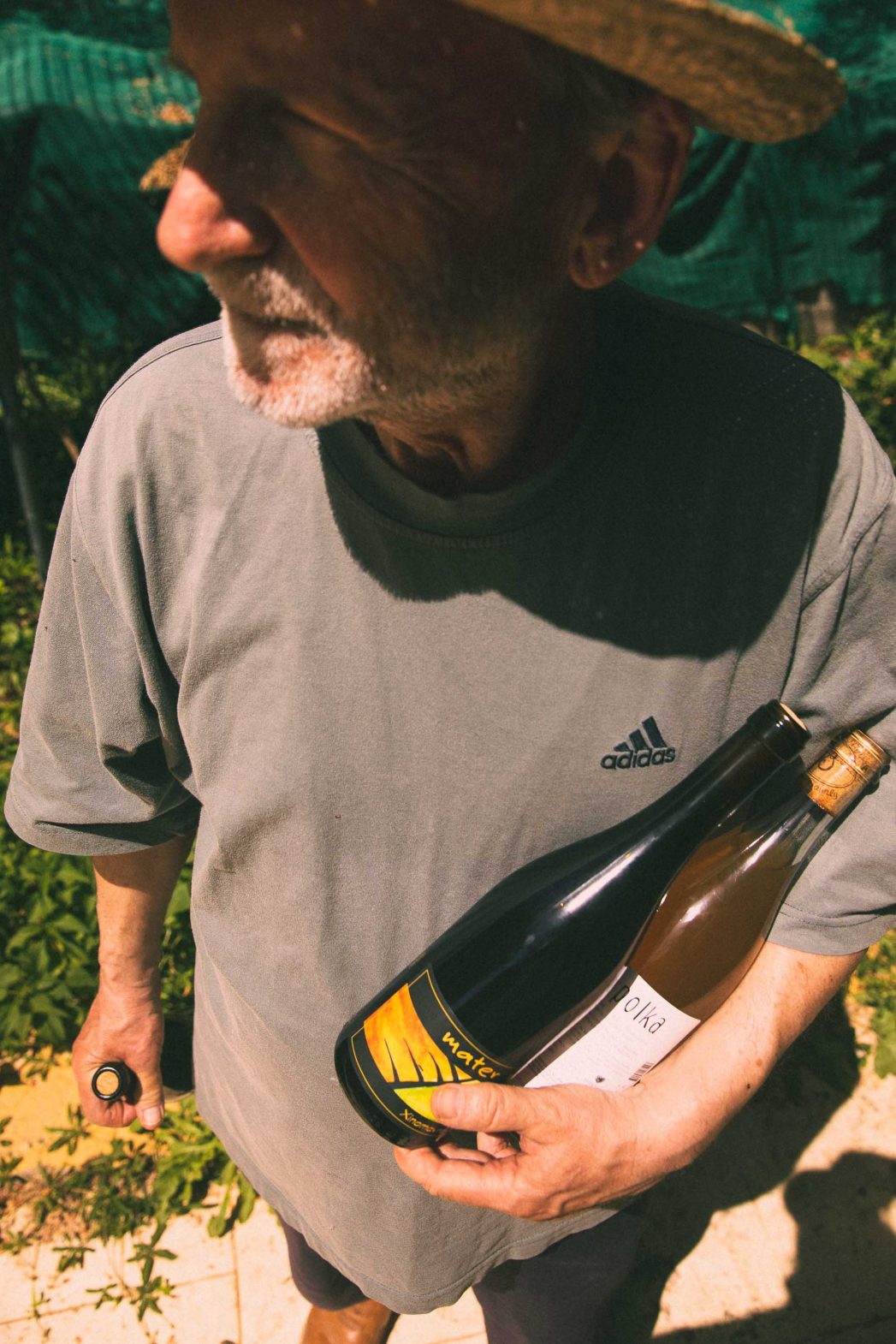
Like many we meet on our cycle through the mountains of Epirus, Lena is proving it is possible to survive and thrive, without major backing, through combining organic agriculture, traditional craft and sustainable tourism. But she argues the biggest barrier to others doing the same—even though many dream of a different, more ecologically-sound way of life in the countryside—is housing: there is nowhere for young people to rent as the traditional stone houses sit empty but not abandoned. Many are owned by multiple family members who don’t know what to do with them or they’re kept as summer houses and inhabited for just a few weeks per year. Lena estimates that less than 10 percent of the houses in Elafotopos have people living in them all-year-round. In the harsh winters, its population shrinks to just 12 people.
“The only thing we’re missing is people to help us—there is work almost all year,” Lena says. “I see so many Greek young people living miserably in the cities. The quality of life here is alpha alpha and the balance between wages and cost of living is good. But if you can’t find a house and you can’t find a school for your kids, of course you can’t stay here as a young couple. There are so many solutions for the problems we have, none of them are too difficult. There has to be a movement for change but if we don’t get there soon, it will be too late.”
Well-managed, sustainable tourism is key to Epirus’ future, yet tourists alone can’t keep rich, complex and year-round traditions alive. Rural people are the stewards of culture, tradition and biodiversity. Unless the musicians, farmers, chefs, bakers, craftspeople, teachers, health workers and other essential workers can earn a living, find a house and raise a family, this lineage breaks down and something so precious will be lost forever. There’s not much time left on the pocket watch.
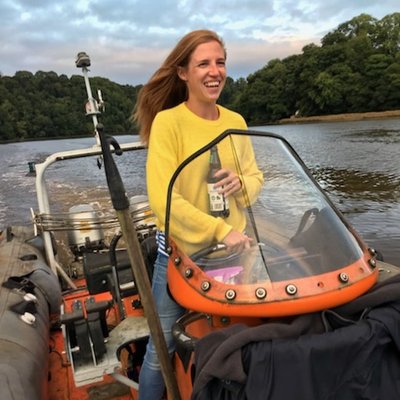

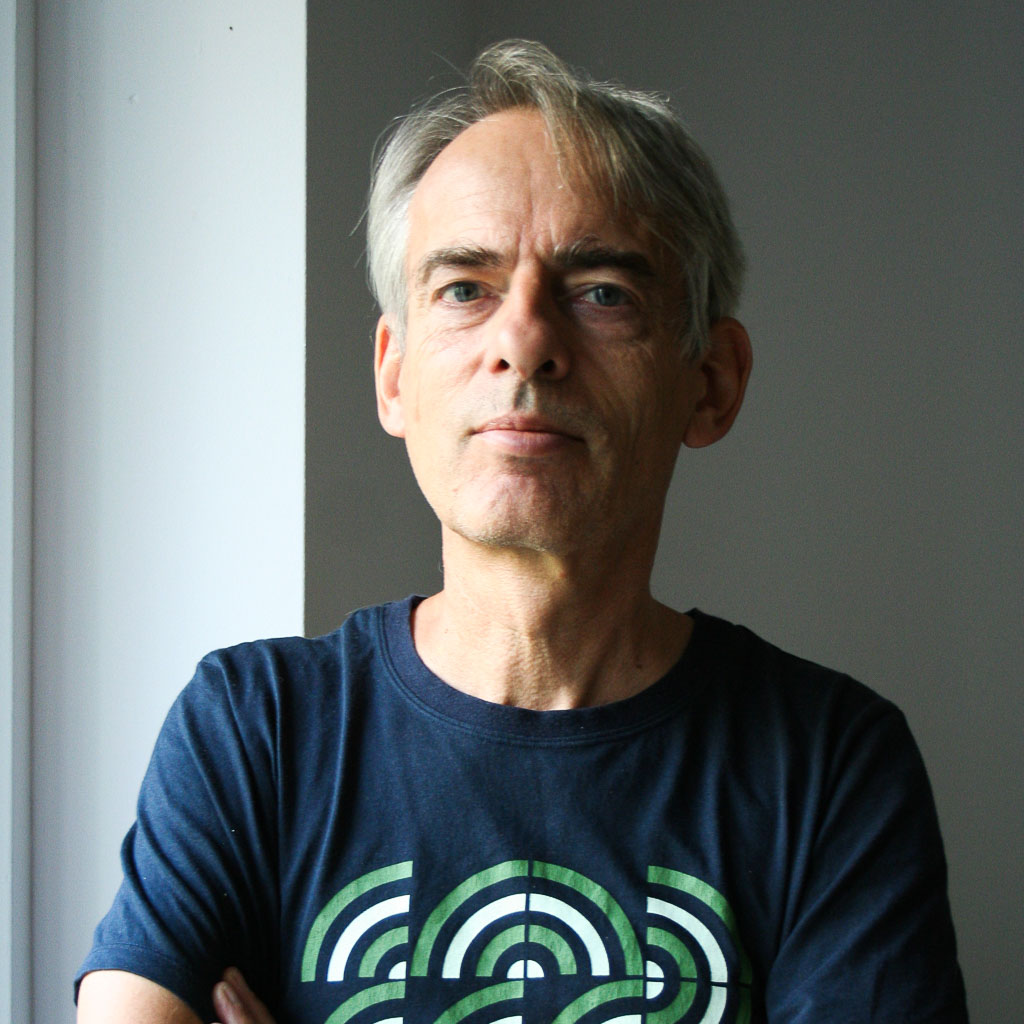





Can't find what you're looking for? Try using these tags: